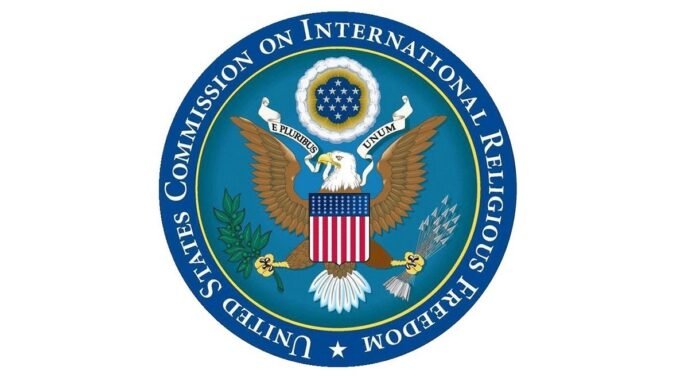The US Commission on International Religious Freedom (USCIRF) convened a virtual hearing on Thursday to examine what witnesses described as severe and systemic violations of religious freedom in Turkey, Turkish Minute reported.
The session opened with remarks from USCIRF Chair Vicky Hartzler and Vice Chair Asif Mahmood, who framed the discussion as part of the commission’s longstanding mandate to spotlight abuses abroad. “Working for freedom of religion or belief is as important now as ever,” Mahmood said.
In her opening statement Hartzler listed violations affecting Turkey’s faith communities — from the denial of legal status to Christian churches to restrictions on worship by members of the Alevi sect and discrimination faced by atheists. She also singled out the crackdown on members of the Gülen movement, a faith-based civic initiative inspired by the late Muslim cleric Fethullah Gülen that once operated a global network of schools and charities, including hundreds in Turkey.
Hartzler cited a recent case widely known as the “Girls’ Trial,” in which women and girls, including high school students, are accused of terrorism due to their alleged affiliation with the movement. The charges are based on activities such as Quran study, tutoring, attending social gatherings and living in shared apartments.
She highlighted the plight of Aysu Bayram, one of the defendants, who reported that prison officials had barred her from performing daily prayers and denied access to religious materials.
The Turkish government’s campaign against the Gülen movement dates back to 2013, when corruption investigations implicated then-prime minister Recep Tayyip Erdoğan and his inner circle. Erdoğan dismissed the probes as a conspiracy by the movement, which had until then enjoyed official support. In 2016 he designated it as a terrorist organization and accused its members of masterminding a coup attempt that July, a charge the movement strongly denies.
The ensuing purge reached nearly all parts of Turkish society. More than 390,000 people have been detained on terrorism or coup-related charges, with over 113,000 arrested. Those targeted included military officers, police, civil servants, teachers, academics, judges, prosecutors, journalists, businesspeople and even housewives.
The hearing marked USCIRF’s first dedicated session on Turkey since 2018 and reflected the growing alarm about the erosion of religious freedom in the country. Commission members also referenced their fact-finding visit to Turkey in September 2024, which informed the commission’s 2025 annual report highlighting state control over religion, discrimination against minorities and the lack of equal treatment for faith communities.
‘No Protestant Church is officially recognized’
Ramazan Arkan, chair of the Association of Protestant Churches in Turkey, testified that Turkey’s 10,000 Protestants live in a legal limbo. “No Protestant church is officially recognized as a place of worship,” he said. Attempts to build churches are blocked, clergy cannot be trained locally and foreign pastors are expelled. He described how volunteers are branded as security threats, their residence permits revoked. “We have reported our problems nationally and internationally, but nothing has changed,” he added.
Alevis denied recognition
Haydar Doğan, chair of the Alevi Foundations Federation, stressed that Alevis make up around one-fifth of Turkey’s population yet remain institutionally unrecognized. Alevis worship in community houses known as cemevis, where men and women pray together, but the state does not recognize these as houses of worship. Nor does it grant legal standing to Alevi spiritual leaders, traditionally called dedes and babas. According to Doğan, the state treats Alevism as folklore rather than faith. He called for official recognition, educational reform and stronger measures against hate speech.
Religious freedom expert warns: It’s not just minorities
Thomas Schirrmacher, president of the International Institute for Religious Freedom, reminded commission members that Turkey’s restrictions extend beyond minorities to include many within the Sunni Muslim majority. He cited the crackdown on Gülen movement followers, certain Sufi orders, atheists and what he described as “over one million crypto-Armenians who live double lives — publicly Sunni, privately Armenian.” While international calls often focus on reopening the long-shuttered Halki Seminary, Schirrmacher argued this would be only “a minor step” compared to the systemic obstacles facing all faith groups.
The Halki Seminary, located on Heybeliada Island, was shuttered in 1971 after the Turkish Parliament enacted legislation banning private institutions of higher education. Despite multiple international critiques and assurances from the Turkish government, the seminary remains closed, hampering the Greek Orthodox Church’s ability to train clergy domestically.
Analysts and lawmakers weigh in
Soner Çağaptay, director of the Turkish Research Program at The Washington Institute for Near East Policy, situated today’s policies within Turkey’s history, from its founding father Mustafa Kemal Atatürk’s secular republic to President Erdoğan’s reassertion of religious identity in public life. He called Turkey “a swing state among global powers” and urged Washington to build institutional foundations for bilateral relations rather than rely on personal ties between leaders.
Congressman Gus Bilirakis delivered the sharpest rebuke, recalling the Greek Orthodox community’s near-eradication over the past century. “One hundred years ago, two million Greeks lived in Turkey. Today, only a few thousand remain after a century of ethnic cleansing and cultural genocide,” he said. Bilirakis condemned the closure of Halki Seminary and the conversion of Hagia Sophia into a mosque, urging that Turkey be designated a “Country of Particular Concern.”
Growing urgency
Although the hearing was conducted virtually, its message was emphatic: Turkey’s religious minorities — and even many within the Muslim majority — face systemic barriers to worship, leadership and recognition. For USCIRF the testimonies reinforced concerns already outlined in its 2025 annual report. The commission, established by Congress in 1998, continues to advise US policymakers on how to address what many witnesses warned is a worsening crisis.















